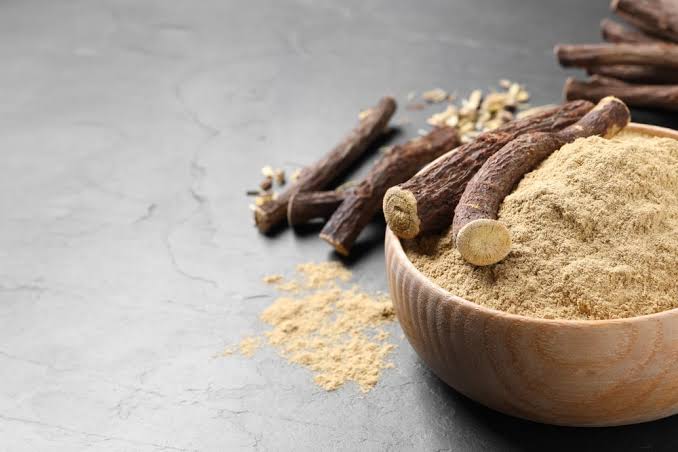Digestive Health and Immunity: The Potential Role of Licorice Root

Let’s explore the fascinating connection between digestive health, licorice root, and the broader impact on immunity.
Beyond the Gut: How Licorice Root’s Digestive Support May Bolster Immunity
We often think of immunity as a standalone system, a vigilant army protecting us from external invaders. However, the intricate web of our physiology reveals a profound interconnectedness, particularly between the digestive system and our body’s defense mechanisms. Emerging research suggests that supporting digestive health, potentially through the use of herbs like licorice root, could indeed have a broader, positive impact on our immunity.
The gut, often dubbed our “second brain,” plays a pivotal role in immunity. It houses a significant portion of our immune cells and acts as a crucial barrier against pathogens.
A healthy gut microbiome, the diverse community of microorganisms residing in our intestines, is essential for proper immune function.
This delicate ecosystem aids in the digestion of food, the synthesis of certain vitamins, and the education and regulation of our immune responses.
When digestive health is compromised – whether due to inflammation, imbalances in the gut microbiome, or impaired gut barrier function – the immune system can be negatively affected.
Chronic inflammation in the gut can lead to systemic inflammation, potentially overwhelming the immune system and making it less effective at fighting off infections.
Furthermore, a leaky gut, where the intestinal lining becomes permeable, can allow harmful substances to enter the bloodstream, triggering an immune response and potentially contributing to autoimmune conditions.
This is where the potential benefits of herbs like licorice root come into play. Licorice (Glycyrrhiza glabra) has a long history of traditional use for its soothing and healing properties, particularly within the digestive tract. Its primary active compound, glycyrrhizin, and other constituents contribute to its various effects:
- Soothing Inflammation: Licorice root possesses anti-inflammatory properties that can help calm irritation and inflammation in the digestive lining. By reducing gut inflammation, it may contribute to a more balanced immune environment. Chronic inflammation in the gut is a known disruptor of immune homeostasis, and by mitigating it, licorice could indirectly support healthy immune responses elsewhere in the body.
- Supporting Gut Barrier Integrity: Some research suggests that licorice compounds may help strengthen the gut barrier. A robust intestinal lining is crucial for preventing the translocation of harmful bacteria and toxins into the bloodstream, thereby reducing the burden on the immune system. By maintaining this barrier, licorice could help prevent unnecessary immune activation.
- Modulating the Gut Microbiome: While direct research on licorice root’s impact on the gut microbiome is still evolving, its anti-inflammatory and prebiotic-like effects could indirectly influence the composition and diversity of gut bacteria. A balanced and diverse gut microbiome is a cornerstone of a healthy immune system, as it helps to educate immune cells and promote the production of beneficial immune signaling molecules.
- Potential Immunomodulatory Effects: Interestingly, some studies have indicated that glycyrrhizin may have direct immunomodulatory effects, influencing the activity of certain immune cells and the production of cytokines (signaling molecules that regulate immune responses). While more research is needed to fully understand these mechanisms, it suggests that licorice root might have a more direct impact on immune function beyond just supporting the gut.
It’s important to note that while the potential link between licorice root, digestive health, and immunity is promising, more rigorous scientific research, particularly in human studies, is necessary to fully elucidate these mechanisms and establish definitive conclusions.
The dosage and form of licorice root consumption can also influence its effects, and it’s crucial to consult with a healthcare professional before incorporating it into your health regimen, especially if you have pre-existing health conditions or are1 taking other medications.
In conclusion, the intricate connection between the gut and the immune system highlights the importance of nurturing digestive health for overall well-being.
Herbs like licorice root, with their potential to soothe inflammation, support gut barrier integrity, and potentially modulate the gut microbiome and even directly influence immune cells, offer a compelling avenue for supporting both digestive comfort and a robust immune system.
As our understanding of the gut-immune axis deepens, we may find that traditional remedies like licorice root hold valuable keys to promoting holistic health.





